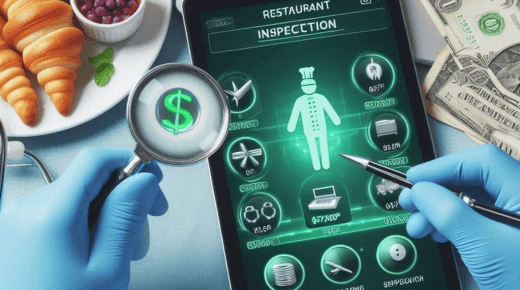Mystery shopping is one of the few tools that can provide a lot of benefits to different fields such as real estate, retail business, and more. This article explores the distinct uses of inspection software in apartment mystery shopping versus retail mystery shopping, highlighting the unique benefits it brings to each field.
Apartment Mystery Shopping: Precision and Compliance
In the apartment rental sector, mystery shopping is used to evaluate the leasing experience, property conditions, and overall customer service. Inspection software in this context is a powerful tool for standardizing and streamlining the evaluation process.
1. Detailed Property Assessments: Inspection software allows mystery shoppers to conduct thorough property inspections with precision. It facilitates real-time documentation of the condition of apartments, common areas, and amenities. Shoppers can easily capture photos, record notes, and upload them directly into the system, ensuring that every detail is meticulously documented.
2. Compliance Checks: For apartment complexes, ensuring compliance with local regulations and safety standards is critical. Inspection software enables mystery shoppers to verify that all compliance requirements are met. This includes checking fire alarms, emergency exits, and other safety features. The software can also be customized to include specific local regulations, ensuring that the property adheres to the necessary standards.
3. Consistency Across Locations: For property management companies overseeing multiple apartment complexes, inspection software provides a standardized framework for evaluations. This consistency is vital for maintaining a uniform standard of quality across all properties. The software allows for easy comparison between different locations, highlighting areas that may need improvement.
4. Data-Driven Insights: One of the most significant advantages of inspection software in apartment mystery shopping is the ability to generate data-driven insights. By compiling data from multiple inspections, property managers can identify trends, common issues, and areas that consistently receive negative feedback. This data is invaluable for making informed decisions and prioritizing improvements.
Retail Mystery Shopping: Speed and Scalability
In the retail sector, mystery shopping focuses on evaluating customer service, product availability, and the overall shopping experience. Inspection software is equally valuable here, but its uses are tailored to the fast-paced nature of retail.
1. Rapid Assessments: Retail environments often require quick and efficient assessments to keep up with the fast-moving nature of the industry. Inspection software allows mystery shoppers to quickly document their findings, such as product placement, stock levels, and staff interactions. This speed is essential for timely feedback and actionable insights.
2. Scalability Across Multiple Locations: Retail chains often have numerous locations, and maintaining a consistent customer experience across all stores is challenging. Inspection software enables retailers to scale their mystery shopping efforts across multiple locations seamlessly. The software can be deployed to hundreds of stores, providing a consistent evaluation framework that ensures all locations meet the brand’s standards.
3. Real-Time Reporting: In retail, timely feedback is crucial for addressing issues promptly. Inspection software offers real-time reporting capabilities, allowing store managers and corporate teams to receive immediate notifications about potential problems. This enables swift corrective actions, reducing the risk of customer dissatisfaction.
4. Customizable Checklists: Retail environments vary significantly, from grocery stores to high-end boutiques. Inspection software allows for customizable checklists tailored to the specific needs of each retail type. This ensures that mystery shoppers focus on the most critical aspects of the shopping experience relevant to that particular store.
Conclusion
While both apartment mystery shopping and retail mystery shopping share the common goal of improving customer experiences, the uses of inspection software differ significantly between the two. In the apartment sector, it emphasizes precision, compliance, and data-driven insights, whereas in retail, it focuses on speed, scalability, and real-time reporting. By leveraging inspection software tailored to their unique needs, both industries can enhance their service quality and maintain a competitive edge in their respective markets.

